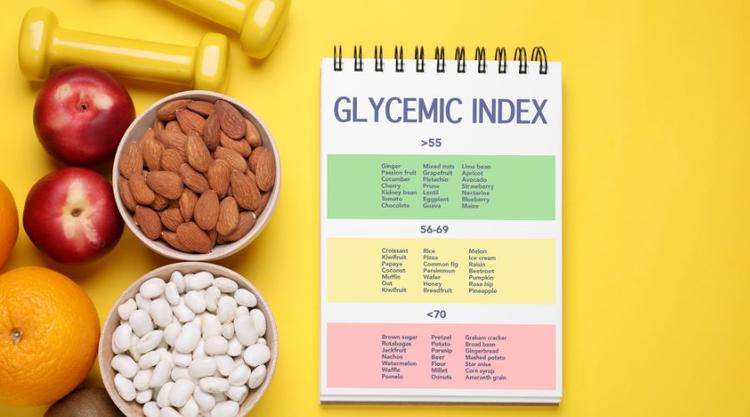7 Tips for Maintaining Healthy Fasting Glucose Levels Naturally

Medically Reviewed By
Dr Sohini Sengupta
Written By Kirti Saxena
on May 6, 2024
Last Edit Made By Kirti Saxena
on May 6, 2024

When did you last check your blood glucose levels?
Remember?
If not, then this is a gentle reminder.
Go and check your glucose levels.
But why is this important?
Maintaining blood glucose levels prevents long-term health complications like heart and kidney disease.
Did you know?
Nearly 25% of people under the age of 25 have type 2 diabetes. It is important to note that 50% of India's population is below age 25, and more than 65% are below age 35.
Lifestyle plays a crucial role in the development of most chronic diseases. Some major factors involved in abnormal glucose levels are a sedentary lifestyle, obesity, stress, and an unhealthy diet.
Persistent ignorance and not taking any action to manage your blood sugar levels may cause severe complications in the future. Consult your doctor and take routine diabetes testing to take charge of your blood sugar levels.
In addition, there are many tips that you can follow to keep your blood sugar levels in check. Let's see the tips.
7 Natural Tips to Keep Your Blood Sugar in Check
People with prediabetes or type 2 diabetes find it very difficult to maintain their good health. The good news is that, alongside prescribed medications by your doctors, you must follow natural ways to support healthy blood sugar levels. Here are some of the best tips to keep your blood sugar level in control-
-
Consume More Fiber
Fiber is a carbohydrate that does not break and is absorbed from the gut into the blood. That means the fiber in carbohydrates won't raise your blood sugar levels. However, the soluble fiber slows digestion, which means the carbohydrate still enters your blood but much slower. This results in a lower blood sugar spike after a meal.
Eat more plant-based foods like fruits, vegetables, whole grains, and legumes. Unlike simple sugars, fiber slows down the digestion and absorption of glucose into the blood. This helps prevent sugar spikes and dips in blood sugar levels, promoting better control.
List of fiber-rich foods you must add to your diet:
- Sweet potatoes
- Beans
- Brussels sprouts
- Broccoli
- Apples
- Pears
- Flaxseeds
- Hazelnuts
How to make it work?
- Include various fiber-rich options in your meals, like berries, nuts, and avocado.
- Eat fruits with skin, like apples and pears, raw vegetables and almonds
Also read: Fruits for Diabetes Patients in India: 10 best low sugar fruits
-
Choose Whole Grains
Not all carbs are equal regarding how they impact your blood sugar levels. Whole grains may improve your blood glucose levels post-meal compared to refined car food in healthy people.
Whole grains are champions when it comes to managing fasting blood sugar levels. Unlike their refined grains, these whole grains contain fiber, vitamins, minerals, and complex carbohydrates. This nutrient profile offers a slow and steady release of glucose in the blood and prevents sugar spikes and crashes in the morning.
Whole grain food included-
- Amaranth
- Barley
- Brown rice
- Amaranth
- Barley
- Brown rice
- Buckwheat
- Oats
- Popcorn
- Quinoa
- Sorghum
How to make it work?
- Swap refined pasta for whole-wheat pasta, or opt for brown rice instead of white rice.
- Replace your white flour with whole-wheat flour.
-
Make Water Your Best Friend
Hydration is the key to staying healthy.
Water helps the body flush out excess glucose through urine. When dehydrated, your body becomes less efficient at using insulin, ultimately increasing blood sugar levels.
How to make it work?
- Aim to drink at least 3-4 liters of water, even if you don't feel thirsty.
- Carry a water bottle and drink water regularly.
- Choose water over sugary beverages like sodas, juices, and sports drinks.
-
Regular Exercise
Did you exercise daily or go for a walk after a meal?
For many hours or minutes?
Physical activity is one of the powerful tools for managing blood sugar. Exercise helps your muscles absorb glucose from the blood and improve insulin activity. However, try to aim for at least 30 minutes of moderate-intensity exercise.
How to make it work?
Try your favorite activities like brisk walking, swimming, or dancing.
Take the stairs instead of the elevator.
-
Manage Stress Levels
Experts say that stress can wreak havoc on your blood sugar levels. When stressed, your body releases stress hormones like cortisol, which can increase blood sugar. Try to adopt techniques like mindfulness meditation, yoga, and deep breathing to manage stress and promote better blood sugar control.
How to make it work?
- Find healthy habits to manage stress, like meditation, yoga, spending time in nature, drawing, watching movies, or listening to calming music.
- Get enough sleep to reduce stress and increase blood sugar levels.
Also read: Fasting Blood Sugar Level: Normal levels & testing
-
Prioritize Quality Sleep for a Balanced System
Sleep is an ultimate part of good health that cannot be underestimated.
When you don't get enough sleep, your body produces less insulin and becomes less sensitive to it, which leads to higher blood sugar levels.
How to make it work?
- Aim for 7-8 hours of quality good sleep each night.
- Make a routine of going to bed on time and waking up on time.
- Ensure your bedroom is dark, quiet, and cool for optimal sleep.
-
Try Intermittent Fasting
Intermittent fasting is a popular tip for weight loss and other health benefits, including managing blood sugar levels.
Research shows that the best time to eat calories is at breakfast and lunch. So try to have a smaller and earlier dinner before 6:00 p.m.
Studies show that it is also highly protective for those who are at high risk of having type 2 diabetes. Consult your doctor before trying intermittent fasting.
How to make it work?
With proper consultation with your doctor, you can try intermittent fasting methods like-
- 16:8 method- In this, you have to fast for 16 hours, and you will be allowed to eat only for 8 hours each day.
- 5:2 method- In these methods, you can eat normally for five days and restrict calories to 2 non-consecutive days.
The Bottom Line
Managing healthy blood sugar levels is crucial for maintaining overall health. By adding the above tips to your lifestyle, you can empower yourself to manage your blood sugar level effectively. Follow your doctor's recommendation, take a fiber and protein-rich diet, prioritize sleep to promote sustained energy, improved insulin sensitivity, and a balanced approach to blood sugar control. Take charge of your health today and experience the benefits of balanced blood sugar levels!
Also read: Blood Sugar Tests: List of Blood tests that help identify diabetes



